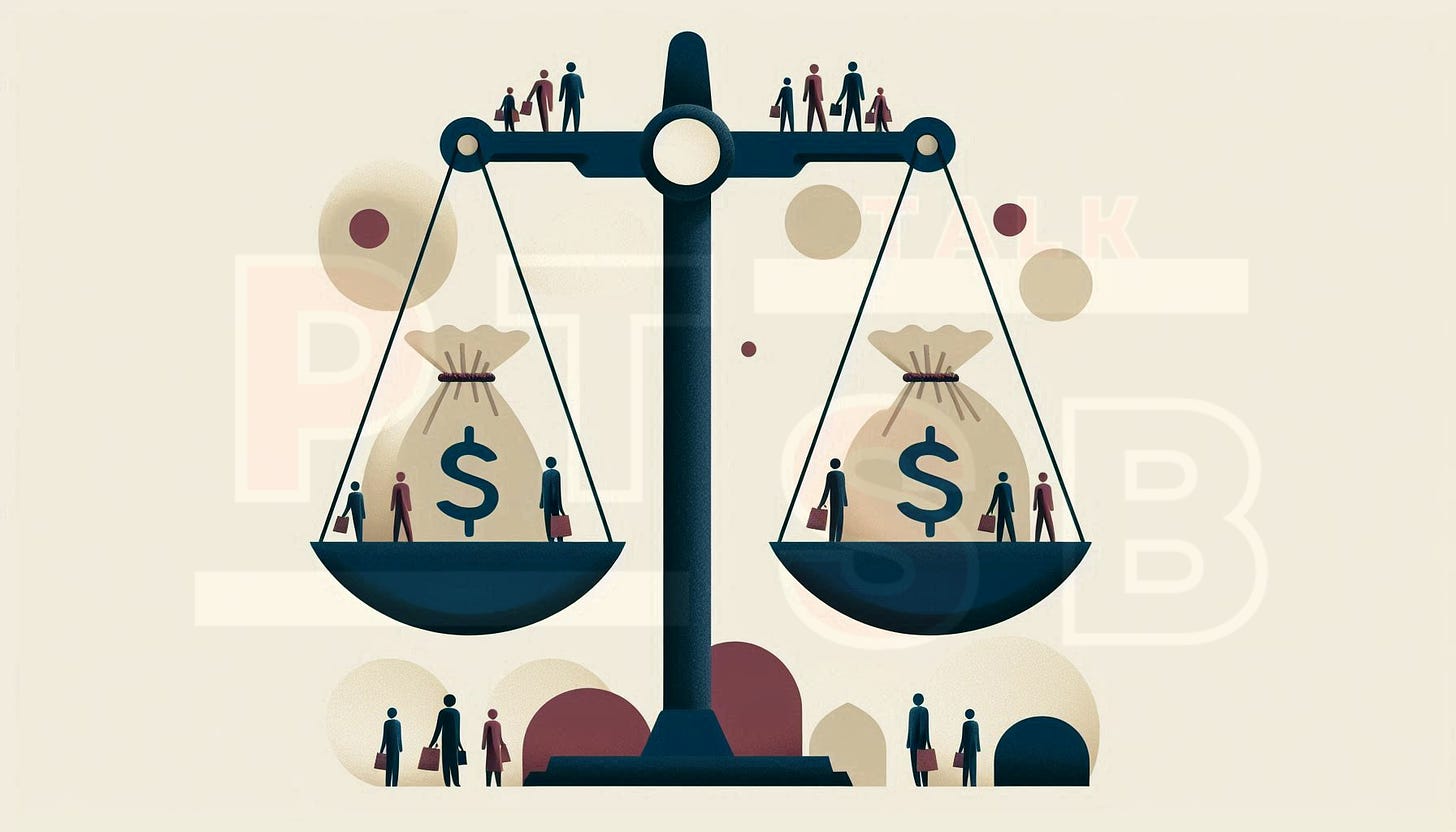The Evolution of Business Ethics: From Ancient Times to Modern Day Development
Trace the development of business ethics from its roots in ancient trade to its influence on today's economies. Discover the formula for success, which lies in the principles of fairness, trustworthiness, and sustainability.

Business ethics isn’t just a modern concept—it has evolved alongside humanity. From the barter systems of ancient civilizations to advanced technology, emerging ethical foundations are shaping what people know today. Understanding ethical evolution reveals not only how businesses used and managed moral dilemmas, but also how to use those lessons to shape ethical behavior today.
Historical Changes of Business Ethics
Trade and commerce can be traced back to ancient civilizations like Mesopotamia, Egypt, and Greece. In these societies, fairness and trust were crucial for sustaining commerce. The Code of Hammurabi is one of the earliest examples of ethics in business, focusing on fair treatment in transactions and establishing repercussions for fraud or negligence.
Ancient Egypt

The idea of ethics in Egypt were centered on Maat, which represented truth, balance, and cosmic order. Loyal subjects view Pharaohs as guardians of these principles, reinforcing justice and appropriate governance within their society.
The 42 Laws of Maat & It’s Impact on Tade and Business
Ancient Egyptians used cultural ethos that was deeply rooted in the concept of Maat (or Ma’at). Although Maat was a goddess in Egyptian pantheon, it also represented detailed framework of order, truth, and justice. The 42 Laws of Maat are laws outlined a strict standard for ethical and moral conduct where every Egyptian aspired to live by.
Honesty in trade and transactions were critical. From the 42 Laws of Matt and its principles, ethical commerce was born. Its goal is to bring balance and fairness while tied to spiritual beliefs, preventing chaos and misfortune.
Ancient Greece

In ancient Greece, philosophers like Aristotle emphasized the importance of virtue in economic activities, personal character, and societal well-being. With religious teachings, the moral compass of commerce shaped what many of us know and practice today (like advocating for honesty, fairness, and responsibility).
Philosophy and Ethics
Similar to later developed Western tradition, philosophers like Socrates, Plato, and Aristotle focused on virtue ethics and how it can reflect how businesses and one’s community function. This also includes eudaimonia. Eudaimonia means to flourish, emphasizing virtuous behavior and fairness in business.
Codes of Conduct in Trade
Plato highlighted justice as a societal pillar, advocating for leaders and individuals to act and be ethically harmonious and effective within their governance. Many Greek merchants followed unwritten norms (honest measures and fair pricing) guided by societal values and expectations. Still, many philosophers continue to debate various concepts of virtue ethics and what specific virtues are morally praiseworthy while uniting prior and emerging philosophies into known ethics.
Technological Advancements and Influence on Ethical Standards
Of course, technology always has been and will be one of many determining factors for change in business ethics. The invention of the printing press revolutionized communication. Today, blogs, websites, or a quick livestream with breaking news updates presents both opportunities and ethical challenges.
Ethical Challenges in the Digital Age
The Industrial Revolution’s mechanizations raised serious questions about worker rights and environmental impact. Now, increase usage of the internet and social media has created a new frontier for business ethics, security, and concerns.
Using digital platforms has made things easier to access, research, and enjoy. From secured global communication, distribution, and furthering education on the go, people are enjoying is simple use and relevance. However, some advanced technologies are becoming more sophisticated in generating misinformation and misrepresentation of the known truths we know and teach today.

Social media provides an incredible opportunity to reconnect with old friends and start new beginnings, all while expanding and revolutionizing global communication and e-commerce. However, the same algorithms designed to maximize user engagement have sparked debates about the ethical responsibilities of many tech companies. This growing dependency on digital platforms and services show just how critical data privacy is in modern ethical standards and practices.
The Role of Data Privacy in Modern Ethics
People throughout the world are concerned about ethical business practices and their data privacy. Companies collect large amounts of personal information, often without consumer consent. Governments and regulators have introduced laws to address transparency, security, and consent, but following these rules isn’t enough. True ethical behavior requires companies to prioritize data protection, train employees on privacy principles, and build consumer trust by valuing privacy over profit.
Cultural and Financial Impacts on Business Ethics
Cultural and financial factors play a vital role in shaping (or reshaping) business ethics. What’s considered ethical in one culture might appear unacceptable in another. For instance, collectivist cultures like Japan or China focuses on harmony and communal well-being. The Western countries favor transparency and individual rights as ethical practices.
Balancing Profit and Social Responsibility

Businesses continues to face challenging obstacles, like achieving financial success while upholding moral accountability. Although maximizing revenue is a primary objective, neglecting overall responsibilities can lead to serious consequences (i.e. consumer trust or legal action).
To avoid these challenges, some organizations embrace corporate social responsibility (CSR) and environmental, social, and governance (ESG).
For more information about corporate social responsibility (CSR), visit 15 Eye-Opening Corporate Social Responsibility Statistics by Harvard Business School (HBS) Online.
For more information about environmental, social, and governance (ESG), visit What is ESG Investing by Investopedia.
Global Leadership: Progress and Sustainability
The modern global economy demand more from leaders, those who can align their strategies with social and environmental responsibilities. This can include adapting to diverse cultural landscapes, implementing effective leadership and traditional management, and ensuring business resilience.
Aligning Goals and Growth
Leadership and ethics aren’t just about driving profits. It’s about shaping the long-term trajectory of businesses while addressing global needs. For example, global corporations have embedded sustainability at the heart of their business models. Through effective leadership ensures that environmental stewardship is not an afterthought, but a brand one can trust when running and maintaining a business.
The Future of Business and Leadership

Sustainable leadership goes far beyond compliance. It requires customized strategies that balances profit with purpose. Companies prioritizing global well-being gain stronger customer loyalty, increased risk management, and long-term growth.
Green technology investments and equitable hiring practices show how businesses adapt to developing challenges and solutions to those challenges. Using ESG frameworks, leaders push towards innovation and collaboration. This ensures relevance in a structured global economy.
Summary
From ancient trade to the global economy, business practices have driven cultural values and technological progress. Strong leadership balances profit with purpose, addressing challenges like data privacy, diversity, and sustainability. By adopting CSR and ESG frameworks, modern leaders align organizational goals with global needs, fostering trust and long-term success.
Author’s Note
Hello everyone and thank you for stopping by to Talk PTSB Lite! As you know, Talk PTSB and Talk PTSB Lite is a contributor-based publication. Yep, that means we welcome any and everyone to join and write or edit for us. We focus on creating a safe and credible environment for writers, editors, and business owners to showcase their knowledge, create a professional portfolio, or to simply have their editorial back after publishing their work they’ve spent days and weeks on.
Go check out our submission guideline page and see if you’re up for the challenge. If so, submit an application today and keep a look out for a response. Best perk? You can send us a lot or a little, whatever works best for you and your writing habits.
Alright, have a great day and stay positive friends!




